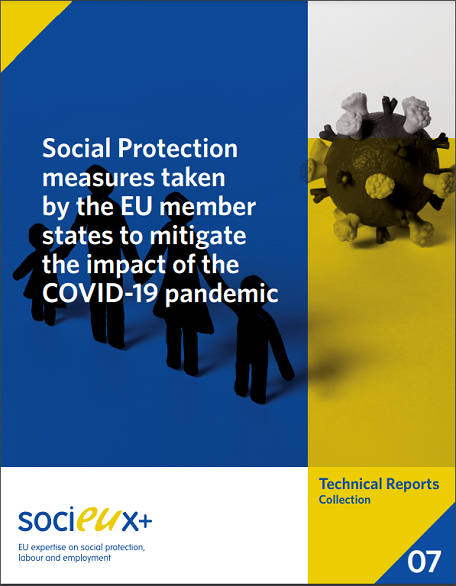Highlights
Countries around the world took measures in the field of social protection and basic services to mitigate the socio-economic consequences of the COVID-19 pandemic. This study gives an overview of measures taken by EU Member States (mainly at national level) during the first wave of the COVID-19 pandemic. The study is based on literature review, written surveys and interviews by phone. The study finds that guaranteeing quality health care, maintaining income (especially for self-employed), complementing social assistance benefits and guaranteeing access to basic services for vulnerable people form the common denominator. Furthermore, the temporary exemption of social contribution payments was used to maintain economic activity.
Most EU Member States established new governance structures to deliver the services and cash transfers. The local level was reinforced as it can easily identify local groups at risk and quickly respond. In addition, digitalization, the use of social work practices, and less restrictive conditions for benefit entitlement (to leave no one behind) can be mentioned. Also coordination among national, regional and local entities, among different types of actors (e.g. state entities, civil society and charities), across fields of intervention and across task forces established to address COVID-19 issues was key.
Despite similar goals, the proposed solutions differ substantially among EU Member States. The implemented measures depend on the established governance, on the social protection system in place and on the economic and sanitary situation of the EU Member States. To conclude, the diverse experiences of the EU Member States to address the consequences of the COVID-19 pandemic offer many learning opportunities: social protection is a powerful lever to mitigate socio-economic consequences of the COVID-19 pandemic.






